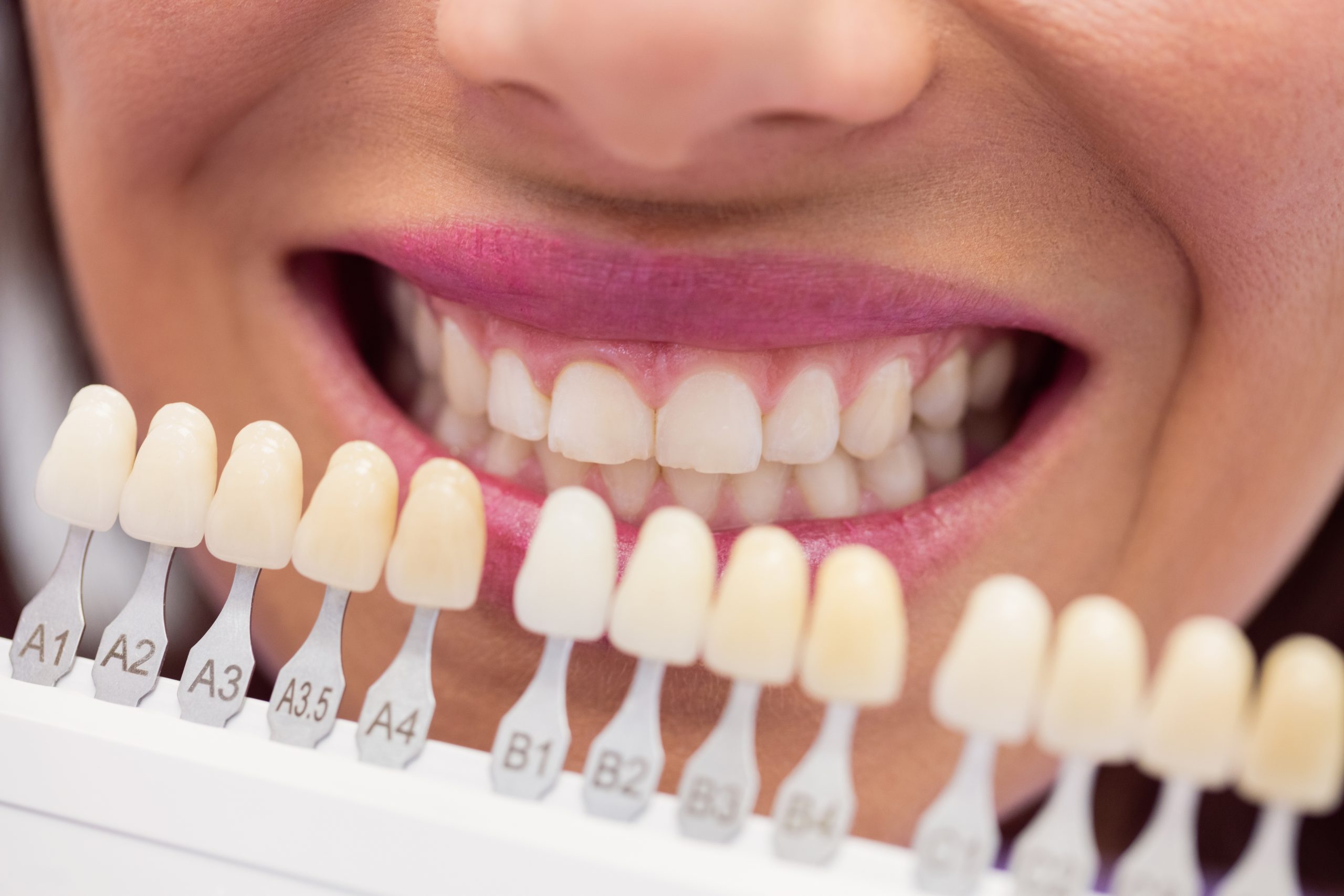

Sami Dogan has treated nearly every type of tooth problem in his 30 years of practice. Cavities are easy to fill. Dental implants are now commonplace. But there is one issue that irritates even the most skilled dentists, he says: tooth sensitivity, the uncomfortable sensation caused by contact with hot, cold, or acidic food.
“We see patients with hypersensitive teeth, but we can’t really help them,” said Dogan, a professor of restorative dentistry at the University of Washington. “We have all these repair options available in the market, but they’re all transient. They focus on treating the symptoms and not addressing the root cause. I see my patients after a couple of weeks, several months, again coming to my practice complaining about the same issue.”
So, a few years ago, Dogan began working with a team of UW materials engineers to establish a natural protocol to restore lost tooth minerals, which they hoped would also be a permanent solution to this terrible disease. Their approach, which was published this winter in the journal ACS Biomaterials Science & Engineering, involves the formation of new mineral microlayers that penetrate deep into the tooth to provide effective, long-lasting natural protection.
Dogan stated that the ultimate goal is to provide easily accessible relief to the millions of individuals worldwide who suffer from dental sensitivity.
The unpleasant sensation occurs when acids, such as those produced when saliva breaks down sugar, erode tooth enamel leading to tooth sensitivity. If left unchecked, this wear, known as demineralization, can expose the channels that connect the tooth’s hard exterior to its softer inner, dentin and pulp. Nerves and blood arteries are rendered unprotected, resulting in agony.
The human body has no mechanism of repairing or regrowing damaged enamel, which is the only non-living tissue in the body. To counteract that loss, the UW researchers created a solution that is molecularly biomimetic, which means it closely mirrors the molecular processes that the body uses to grow teeth.
A peptide—a short chain of amino acids produced from the bigger protein amelogenin, which is essential in the biological development of human teeth—is at the heart of that process. The carefully customized peptide, known as sADP5, grabs onto calcium and phosphate ions, which are the major components of tooth mineral, and uses them to form new mineral microlayers.
“Our technology forms the same minerals found in the tooth, including enamel, cementum, and dentin alike, which had dissolved previously through demineralization and caused the sensitivity,” said lead author Deniz T. Yücesoy, who began this work as a postdoctoral researcher at UW and is now an assistant professor at the Izmir Institute of Technology in Türkiye. “The newly formed mineral microlayers close the communication channels with the tooth nerves, and then hypersensitivity shouldn’t be an issue for you.”
The peptide can be incorporated into almost any oral health product. Participants in preclinical trials received a cough drop-sized dental lozenge with a core of calcium and phosphate wrapped in a layer of peptide-infused flavour. Peptide-based products such as mouthwash, dental gels, tooth whiteners, and toothpaste have also been developed by researchers.
“There are lots of different design and delivery methods,” said Hanson Fong, an assistant teaching professor of materials science and engineering at the UW and co-author of the paper. “The most important thing is the peptide, the key ingredient in the given formulation, and it’s working.”
more recommended stories
 Phage Therapy Study Reveals RNA-Based Infection Control
Phage Therapy Study Reveals RNA-Based Infection ControlKey Takeaways (Quick Summary) Researchers uncovered.
 Safer Allogeneic Stem Cell Transplants with Treg Therapy
Safer Allogeneic Stem Cell Transplants with Treg TherapyA new preclinical study from the.
 AI in Emergency Medicine and Clinician Decision Accuracy
AI in Emergency Medicine and Clinician Decision AccuracyEmergency teams rely on rapid, accurate.
 Innovative AI Boosts Epilepsy Seizure Prediction by 44%
Innovative AI Boosts Epilepsy Seizure Prediction by 44%Transforming Seizure Prediction in Epilepsy Seizure.
 Hypnosis Boosts NIV Tolerance in Respiratory Failure
Hypnosis Boosts NIV Tolerance in Respiratory FailureA New Approach: Hypnosis Improves NIV.
 Bee-Sting Microneedle Patch for Painless Drug Delivery
Bee-Sting Microneedle Patch for Painless Drug DeliveryMicroneedle Patch: A Pain-Free Alternative for.
 AI Reshapes Anticoagulation in Atrial Fibrillation Care
AI Reshapes Anticoagulation in Atrial Fibrillation CareUnderstanding the Challenge of Atrial Fibrillation.
 Hemoglobin as Brain Antioxidant in Neurodegenerative Disease
Hemoglobin as Brain Antioxidant in Neurodegenerative DiseaseUncovering the Brain’s Own Defense Against.
 Global Data Resource for Progressive MS Research (Multiple Sclerosis)
Global Data Resource for Progressive MS Research (Multiple Sclerosis)The International Progressive MS Alliance has.
 AI Diabetes Risk Detection: Early T2D Prediction
AI Diabetes Risk Detection: Early T2D PredictionA new frontier in early diabetes.

Leave a Comment